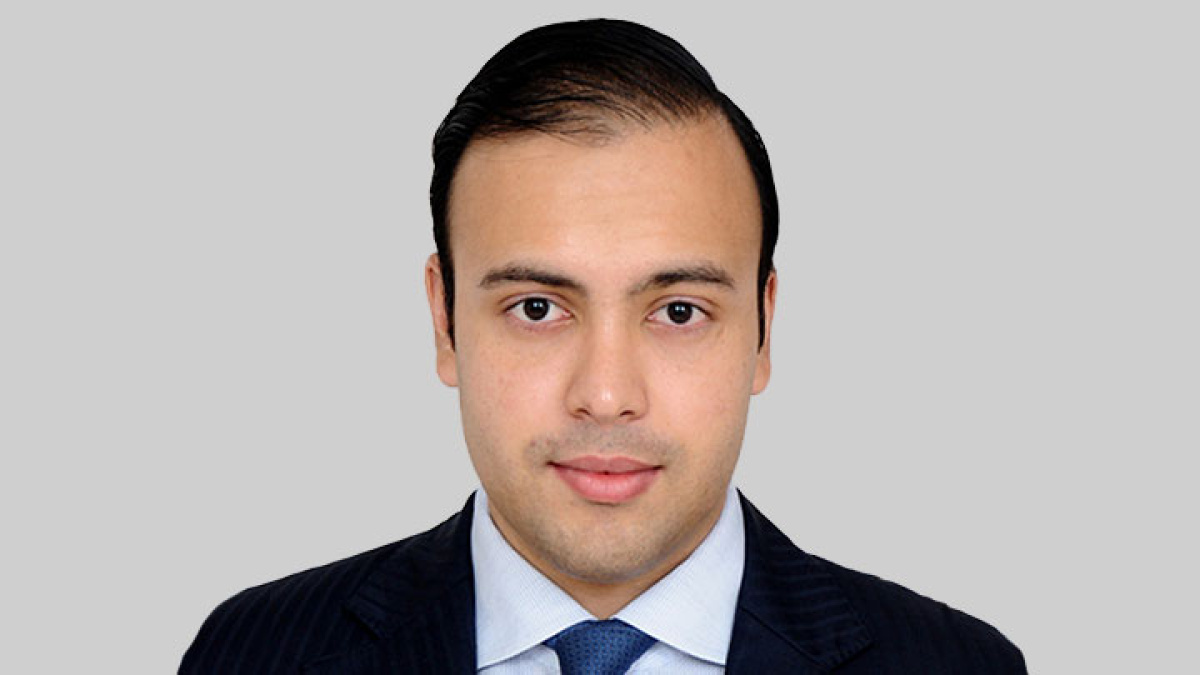
Vidit Jain, MBA/MS '22
After graduating from Boston University with four majors (mathematics, economics, finance, and computer science), it took Vidit Jain, MBA/MS '22, some time to figure out exactly what he wanted to do. He first worked in finance and with nonprofits, and then went on to co-found an organic food coloring company. Despite these ventures, in 2019, Vidit reached an inflection point in his career, and decided to sell his ownership stake in his organic food coloring company. He had been in the United States for six years, and he felt it was the right time to go to business school, to pursue working at the intersection of business and sustainability.
Vidit said he chose the Michigan Ross Global MBA Program in part because it would give him the opportunity to make connections with other international students and become familiar with a more diverse business culture.
If someone wants to work abroad and wants to get a head-start on the business culture and networking in Asia, while also getting a really, really solid business school education, I would say that this program would be for them."
Pursuing a Dual Degree
Vidit credited Michigan Ross for giving him the opportunity to explore a variety of classes. This flexibility prompted his interest in the MBA/MS dual-degree program with the Erb Institute, the University of Michigan’s business sustainability partnership between the Ross School of Business and the School for Environment and Sustainability (SEAS).
“I wanted to learn more about climate change and understand the key frameworks and drivers of this grave problem, because this is the single most important topic in our lifetime. The Erb dual degree and the way it is structured provides us with flexibility to study this issue in depth, while also taking an application specific focus, something that helps us take actionable projects and insights into our life post graduation.”
Vidit's interest lay in studying sustainability with a focus on sustainable systems. At Ross, his learning is guided by strategy: understanding how businesses make decisions and how those decisions impact the firm, revenues, and ultimately the bottom line. At SEAS, Vidit is learning how to properly minimize the negative impact on the environment, improve hiring practices, and make improvements across environmental, social, and corporate governance.
“I think it is interesting because at Ross, I’m studying how to make more money, and with SEAS, I’m studying how to do better for the environment, which in the real world might be idealistic and not implementable yet. But I think if you put the two together, you have a more nuanced approach to both business and the environment; you aren’t as radical on either of the sides. That’s been a great experience.”
Given the Global MBA Program's accelerated 15-month schedule, Vidit is able to earn his dual-degree in two-and-a-half years. Support from the Ross advising team helped Vidit navigate his dual-degree program and plan his schedule around his interest in sustainability. The Erb Institute provided a community that shares Vidit's passion for both business and the environment. “Within the Ross ecosystem, we have about 30 or 40 students a year (pursuing the dual degree), so it’s a really, really tight-knit community.”
Gaining a Global Network
Vidit shared that another benefit of the Global MBA is the opportunity it provides to work with people from all over the world. On one team project, Vidit worked with four other people, and not one person was from the same country.
We had one person from Japan, one person from Thailand, one person from the U.S., and one person from London. That was interesting because it gave us such a good simulation of a real-world experience, like when you work at a big multinational company because that is probably similar to what a team make-up would look like.
Vidit said he also valued the accessibility of the Global MBA professors, who helped guide him and his peers through the program. He noted that some faculty even join events that the Global MBA cohort hosts each month.
“Our relationship with them, it helps. It’s been really cool that we’ve had so much interaction with them and this has been not just while we’re taking classes.”
Vidit said the biggest takeaways from his experience in the dual-degree program have been gaining a nuanced understanding of the key tradeoffs between profit maximization and climate focus, and learning how to create solutions and mechanisms that benefit both business and the environment. Upon completion of his dual degree, Vidit plans on exploring sustainability consulting and cleantech opportunities.




